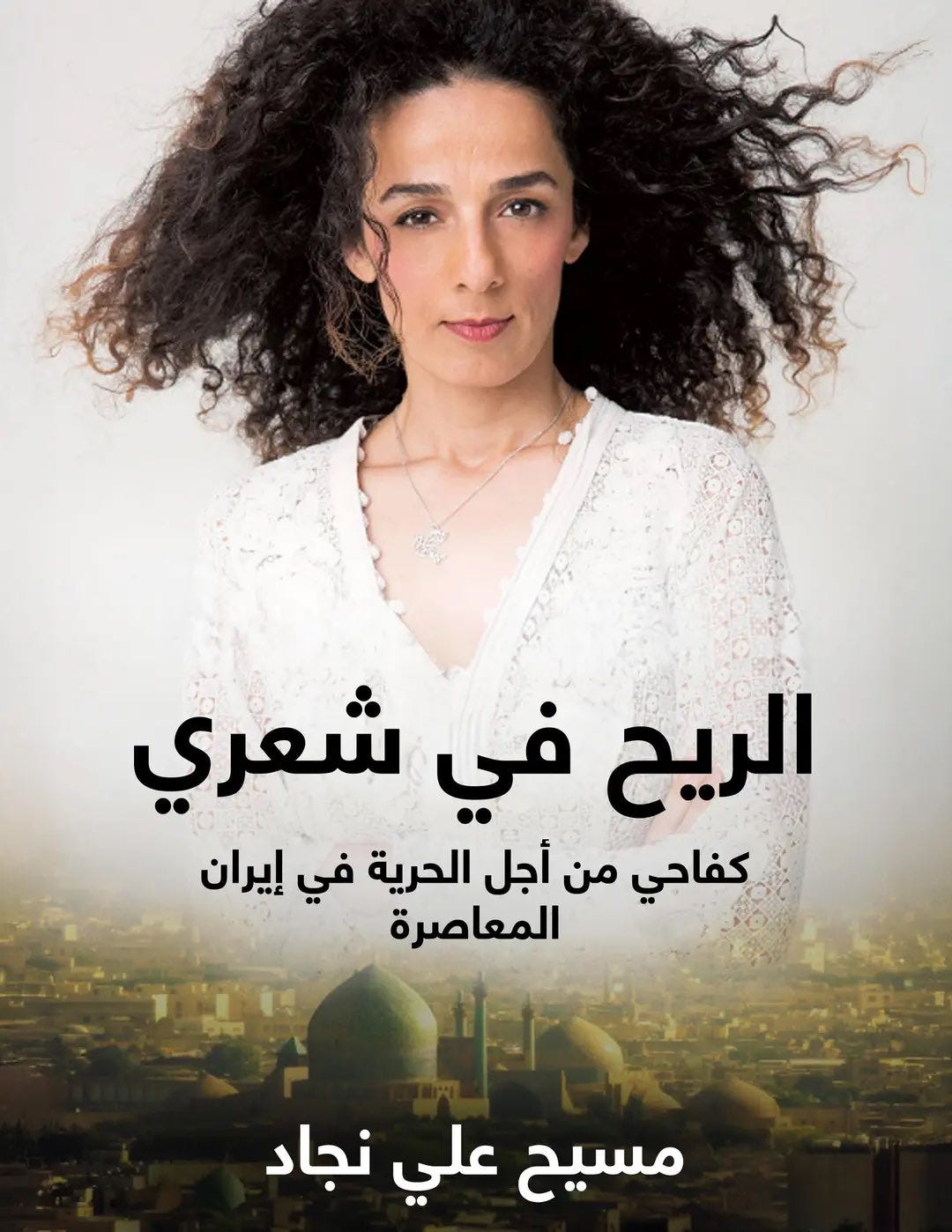Masih Alinejad's Voice Unveiled
What The Wind In My Hair's translation means for Arabic-speaking women and the fight for agency
When Masih Alinejad’s memoir The Wind in My Hair was first published in 2018, it quickly became a vital document of personal resistance and political courage. With her signature candor and defiance, Alinejad charted her path from a remote village in northern Iran to the global stage, where she became one of the most visible critics of the Islamic Republic and its compulsory hijab laws. Her story is not just one of protest, but of profound personal transformation, making her memoir as intimate as it is incendiary.
Now, translated into Arabic for the first time, The Wind in My Hair enters a new cultural and political terrain—one where its ideas have the potential to resonate widely across the Middle East, and perhaps more dangerously, challenge entrenched systems of power from within.
The timing could not be more consequential.
In recent years, protests in Iran—sparked most dramatically by the 2022 death of Mahsa Jina Amini while in custody for allegedly violating the hijab mandate—have reverberated throughout the region. Though Alinejad has lived in exile for more than a decade, her campaigns such as My Stealthy Freedom and White Wednesdays helped lay the groundwork for a new generation of resistance, driven largely by women and girls. Her work has not gone unnoticed by Tehran. She has been the target of multiple assassination plots, including a thwarted kidnapping and a recent attempt in 2022, when a man armed with a loaded assault rifle was arrested outside her Brooklyn home. The message from the Iranian regime was unmistakable: even oceans away, her voice is considered a threat.
And it is.
What makes Alinejad’s story powerful—especially for Arabic-speaking audiences—is its unapologetic embrace of agency and dissent in the face of theocratic control. Her rebellion is not born of ideology but of experience: the feeling of hair stifled under a scarf, the injustice of being expelled from parliament for speaking too freely, the loneliness of exile. These are the details that animate her memoir and make it more than a political manifesto. It is a record of what it means to want to breathe freely in a society that polices the body and censors the mind.
The Arabic translation opens a critical space in a region where discussions about gender, autonomy, and freedom are still deeply contested. Across the Middle East, millions of women live under varying forms of legal and cultural restrictions, often sanctioned by both religious authority and state power. In such contexts, a memoir like Alinejad’s does more than inform—it disrupts. It invites readers to imagine a different relationship with power and identity, one shaped by self-determination rather than submission.
Memoir allows us to inhabit a life not our own, and in doing so, expand the boundaries of what we consider possible. Alinejad’s writing carries this moral force. Her tone is often irreverent, sometimes humorous, and always unflinching. She does not ask for pity; she demands attention. That insistence is precisely what makes her book so valuable, and so dangerous to those who fear the consequences of awakened minds.
In the West, Alinejad is frequently cast as a dissident celebrity or human rights icon. But in the Arabic-speaking world, this book offers something even more vital: a mirror and a provocation. It challenges readers not just to see Alinejad, but to see themselves—and the structures that govern their lives—with fresh eyes.
Translation, in this case, is not just linguistic. It is political.
Alinejad says:
“They can kill me, but they can’t kill my ideas. They can’t silence my voice. Because free voices echo, even underground.”
“يمكنهم أن
يقتلوني، لكنهم لا يستطيعون قتل أفكاري. لا يستطيعون إسكات صوتي.”
As The Wind in My Hair finds new life in Arabic, its journey is far from over. The winds of change in the Middle East are rarely predictable, but books like this can shift their direction. Alinejad’s voice—clear, insistent, and uncowed—is now accessible to a wider audience, and in that act of cultural transmission, something powerful is unleashed: the idea that freedom is not a Western import, but a human inheritance.
And perhaps, most provocatively, that the desire to be free is already whispering in the wind.




